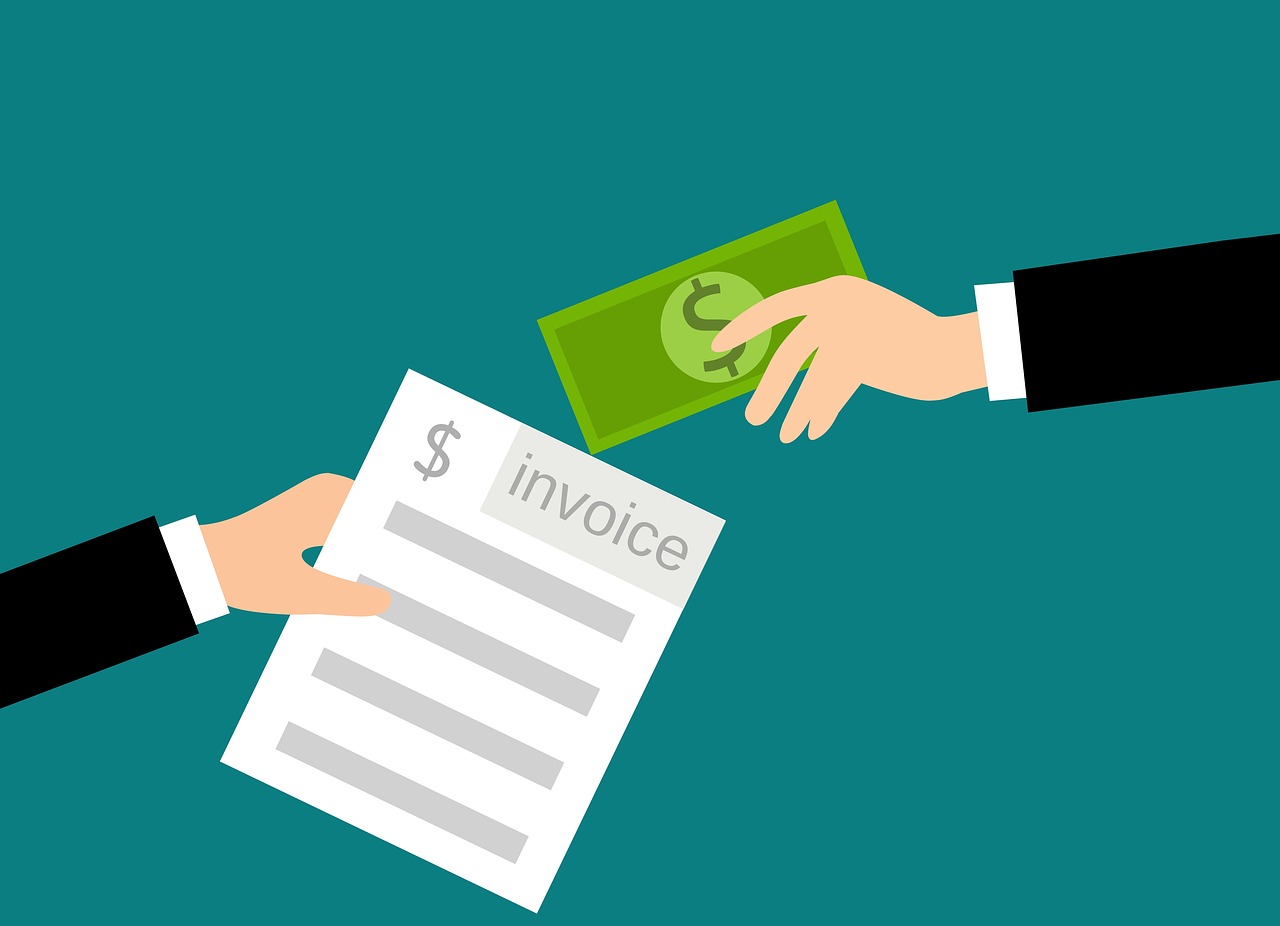The trucking business is among the most lucrative businesses in the world and many trucking companies are looking to expand their operations to cater to the ever-rising demand. Just like other businesses, you need sufficient cash flow to run a trucking business.
Maintaining cash flow is important in a trucking company. Without it, you will have problems paying for expenses such as fuel, truck repairs, insurance, and driver salaries.
Truck factoring can help solve problems related to cash flow. It will give you the money you need to pay for your expenses or expand your business. However, before you choose truck factoring as a financing option, there are several things you should know about what the process entails and how best to go about it.
Below is a detailed guide on all you need to know about truck factoring.
The Process of Truck Factoring

After you’ve identified a good factoring service to work with such as factorfinders.com, the company will require you to send a copy or copies of the trucking invoices to the factor.
You need to indicate how much money you need from the invoices. Some factoring companies will offer you a cash advance of up to 98% of the invoice.
Once the factor approves the requests, they will send the cash advance to your company account. After the invoice has matured, the factor will collect the payment from the client at your behest. Keep in mind that the factor will include a factoring rate or fee as charges for the service.
The Concept of Truck Factoring
Truck factoring is a form of invoice factoring where you sell your trucking invoices to a factoring company for a cash advance. In a transportation business, the drivers usually move the goods from one point to the other, and the client pays the trucking company once the goods have arrived.
To effectively serve your customers, you will incur several costs during your operation such as fuel, insurance, repairs, and maintenance, among others. If you do not have enough cash to pay for such costs, your ability to serve your customers will be severely affected.
As such, you can sell your invoices to a factoring company to get the money you need to keep your business running. The factoring company that buys your invoice will collect the payment from your client once the invoice matures.
What You Need To Apply for a Factoring Service
First, you will need proper authorization to sell the invoices. As a business owner or manager, you should have the authority to sell invoices. Without the right authorization, it’s unlikely that factoring companies will accept your offers.
Since the factoring company cannot dictate how you are to use the money, as a strategy to minimize the chances of theft and fraud, they will only buy invoices from people with the authority to do so.
The most important document when applying for a cash advance is the trucking invoice. You will hand over the tracking invoice(s) you want to sell to the factoring company, and they will do their research on your client. Once the factoring company confirms the invoices are authentic, they will forward the cash to your company account.
You also need proof of insurance to sell your invoices. Insurance helps to cover losses or damages to goods during transportation. If you do not have insurance, you will have to cover any loss or damages out of pocket. Factoring companies avoid such scenarios by requiring that you provide proof of insurance for the truck and the goods.
Mind The Truck Factoring Terminologies
A good understanding of the terms used in factoring will ensure that you know what you are getting into. Here are some of the complex terms you are likely to come across during the truck factoring process:
- Advance rate: This is the money paid to your company by the factor.
- Recourse factoring: A form of factoring where the company must pay back the factoring company if the client invoiced is unable to make payments.
- Non-recourse factoring: Another form of factoring where your business cannot be held liable if the factoring company cannot collect your client’s payment.
- Spot factoring: A type of factoring that gives trucking companies the allowance to factor one invoice without a long-term commitment.
The list above may not be exhaustive but it should give you an idea of the different terminologies so that you do not enter into a factoring agreement blindly.
Know the Rates and Fees
Before you agree to a factoring contract, you should be wholly familiar with the advance rate and the factoring fee. The needs of your business, as well as your client’s likelihood to pay, will determine the advance rate. Your income will also determine the factoring fee; if you earn a lot in a week, the factoring company will lower its factoring fees.
Some factoring companies offer up to 98% advance rate. As for the factoring fees, the charges differ depending on the factor. Some companies will have their factoring fees at 0.69% and some at 1%.
If you are short on cash but you are waiting for a reliable client to pay up, you can sell your trucking invoice at a high advance rate. If you only need a small amount or you are waiting on a client who usually does not pay in time, then take a low advance rate.
Know Your Expenses
One of the best things about truck factoring is that you are not limited to how and what you should spend your money on.
Once you receive your cash advance, the factoring company will not follow up on how you spend it. Before you decide to sell the trucking invoices, calculate how much you need and where you will spend it to improve your business.
Some factoring companies have multiple truck factoring programs for trucking companies to choose from. As such, make sure you choose a program suitable to your company’s needs so that the money you get from selling the invoice does not go elsewhere.
Your Credit Issues Do Not Matter
Another good thing about truck factoring is that your credit score or your company’s credit score does not matter. The credit score that matters in a truck factoring contract is that of your client.
If your client has a low credit score, you might get a less favorable truck factoring program. If your clients pay their bills on time, you are bound to get a favorable truck factoring program.
Always Read and Understand the Fine Print
One of the mistakes a trucking company can make when choosing a factoring program is failing to read and understand the terms stipulated within a factoring contract.
You have to be when reading through a contract because a simple mistake may hurt your business in the future. Always check for terms and phrases that may cost you additional hidden fees.
Sometimes, a factor may tell you that their factoring fee is 3%, and you sign the contract thinking you have a great deal. When you receive the money, you realize the factoring company has deducted 10% and start wondering where the additional fees came from. Upon further investigation, you realize there were hidden fees in the contract when it’s too late.
Ask as many questions as possible and ask the factor to be clear on all the fees they charge.
Choose the Correct Kind of Factoring
Another mistake a trucking company can make is choosing the wrong factoring option. There are two kinds of factoring, recourse and non-recourse factoring.
With recourse factoring, your company is liable to pay the factoring fees if your clients fail to pay them. With non-recourse factoring, if the factor cannot collect the payment, your company will not be held accountable.
You need to think about what kind of factoring will suit your business best. Non-recourse seems a good option, but it attracts high factoring fees. Recourse factoring is less costly but will render you financially liable if your customers fail to pay the factor.
Payment Made To the Factoring Company
You should note that the money no longer belongs to you after selling the invoice to the factor. Payment for that particular invoice should be made to the factoring company.
After you sell the invoice, you should contact your client and inform them that they should pay the factoring company after they receive their goods.
Your client might pay you instead of the factoring company. If this happens, you should forward the payment to the factoring company as soon as possible to avoid future inconveniences.
Work With a Good Factor Such as factorfinders.com
Truck factoring can be the best way to finance your business and ensure that you have a steady cash flow. Factoring allows you to get quick cash advances to funnel into your business instead of having to wait for your clients to pay their invoices.
The most important thing is to make sure that you get good value for your money. Be careful when choosing a factor and ensure that you choose the right type of factoring that will suit your business best.
Read Also:
- The Advantages and Disadvantages of Receivables Financing
- 7 Reasons to Go for Accounts Receivable Financing
- The 7 Most Important Invoices for Your Small Business
Author: Abdul Mateen















